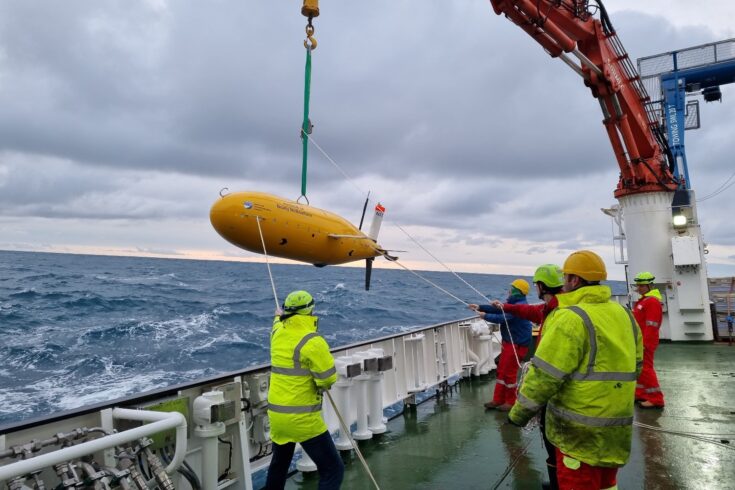Each of the projects encompasses a diverse array of UK universities and research institutes, as well as collaborating with an array of international partners and organisations.
Marine organisms play a critical role in storing carbon in the ocean that would otherwise be in the atmosphere. However, recent evidence suggests that climate models are not fully accounting for their impact. This could hinder predictions of the ocean’s role in future carbon storage at a critical time.
Understanding ocean carbon storage
Adrian Martin, BIO-Carbon Champion, said:
With countries striving for net-zero carbon and debate ongoing over whether we can use the ocean to remove excess carbon dioxide from the atmosphere, the need to understand how the ocean stores carbon has never been stronger and we know that marine life plays an important role.
Partnering with the Future Marine Research Infrastructure (FMRI) project, these three exciting projects will use an ambitious combination of research vessels and marine robots. Together they will deliver fundamental insights into how ocean organisms will help it continue to store carbon as the climate changes.
Investigating the role of marine ecosystems
The projects being funded by the Bio-Carbon programme include the Particle transformation and respiration influence on ocean carbon storage (PARTITRICS) project.
Using shipboard observations and autonomous underwater vehicles (AUVs), this project will seek to answer how organic matter is transformed through interactions between particles and organisms. It will also look at how these changes depending on depth, location and season.
The next project, Coccolithophore controls on ocean alkalinity (CHALKY) will quantify how diversity and ecology influence the oceans’ ability to absorb carbon dioxide.
Part of the CHALKY project will examine the influence of marine viruses and grazing by zooplankton, microscopic animals such as copepods, foraminifera and sea snails that form a vital part of the ocean’s food chain.
Utilising marine infrastructure
The Integrating Drivers of Atlantic Productivity (IDAPro) project will further use a combination of ship-based, robotic and satellite platforms, to improve the understanding of the productivity of phytoplankton. Phytoplankton are single cell organisms that form the basis of all life in the ocean and which are ultimately responsible for an enormous amount of ocean carbon storage.
The three projects will also collaborate on a simultaneous mission funded by the FMRI programme. FMRI seeks to enhance ocean exploration by delivering a new generation of UK research infrastructure.
To coincide with the research ship expedition next spring, the National Oceanography Centre’s (NOC) famous Boaty McBoatface AUV will embark on a trip from the Iceland to UK, rendezvousing with the research ship en route.
Research vessels
A suite of sensors on Boaty will allow it to provide data to the different projects over a wider area than possible using the ship alone, assisted by multiple smaller robot samplers, called gliders and Bio-ARGO floats, which will also be deployed during the cruise.
BIO-Carbon will utilise both the RRS James Cook and RRS Discovery, world class research facilities operated by NOC.
All three projects will generate new data on how ocean biology impacts the storage of carbon that will help to inform the next generation of ocean modelling through future stages of the BIO-Carbon programme.

